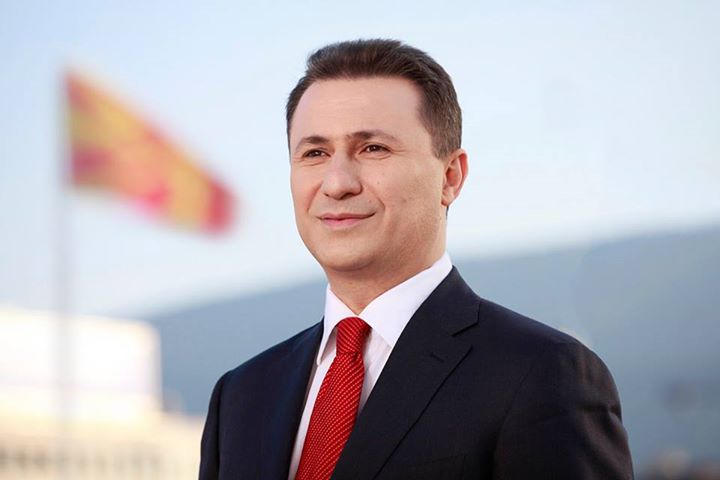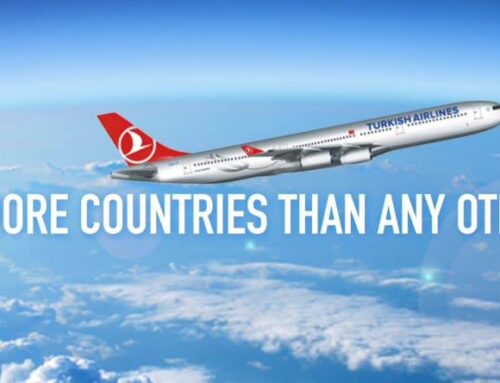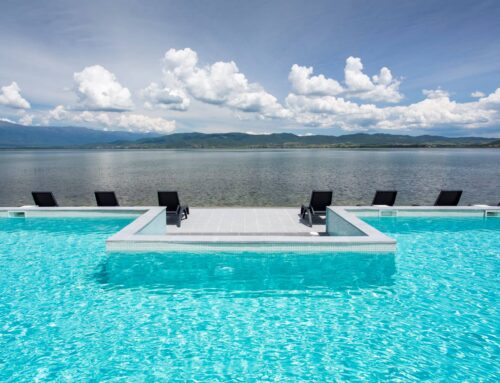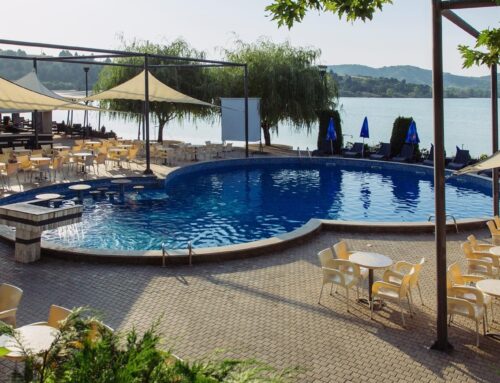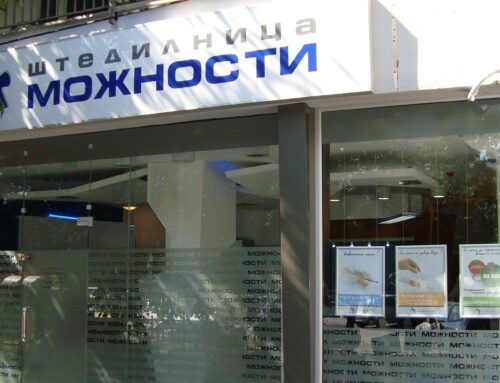Nikola Gruevski, Prime Minister of Macedonia since 2006, is known for his modern, pro-business approach to economic development. He was the first trader on Skopje’s stock exchange, published articles on economics, and began his political career as a city counsellor in 1996. Later he served as Macedonia’s Minister of Trade and Minister of Finance. Known for spearheading the deregulation and opening of the Macedonian economy, he introduced the value-added tax, a flat tax, and a policy to restore property, which had been confiscated by the communist regime. He heads the VMRO-DPMNE political party. The Prime Minister discusses his administration’s accomplishments and goals for Macedonia.
European Times: What have been your main priorities and focus as Prime Minister of Macedonia for the past eight and a half years?
Nikola Gruevski: My administration has always focused on five key strategic goals. One goal is to develop the Macedonian economy and enhance quality of life for Macedonians through improving the business climate and creating investment incentives. The second goal is to integrate Macedonia into the EU and the Euro-Atlantic region. Our third goal is to promote good relations among members of Macedonia’s ethnic groups and to give every Macedonian an equal chance to achieve a good life. Our fourth goal is to maintain the rule of law and to fight corruption. Finally, we aim to promote a knowledge-based economy in Macedonia through supporting education and innovation. We also have goals concerning healthcare, agriculture and the environment, but these five strategic goals are our main targets.
European Times: The World Bank’s “Doing Business” report for 2015 ranks Macedonia the third-best country in the world for starting a business. How has your administration achieved this and what was its main strategy?
Nikola Gruevski: When I became Prime Minister in 2006, the biggest challenge Macedonia faced was unemployment. In the belief that establishing better conditions for doing business would lead to job creation, my administration reduced taxes and introduced flat 10% corporate and personal income taxes, lowered the costs of doing business in Macedonia (including reducing VAT in 10 sectors from 18% to 5%), streamlined bureaucracy through our Regulatory Guillotine project (developed with the help of the Chamber of Commerce and around 300 private companies), reduced customs duties, and reduced companies’ contributions to health and pension funds by about one-third. Because of these measures, Macedonia is now one of the most competitive countries in the world concerning business costs.
European Times: Your administration has made remarkable changes in Macedonia’s education system. Can you elaborate on those changes?
Nikola Gruevski: We have focused on improving the quality of education as well as expanding opportunities for education. My administration introduced free, mandatory secondary school in addition to primary school, added instruction in several languages to the curriculum, introduced classes in ICT training, and ensured that every child in primary or secondary school would have access to a computer and to training in how to use it. Concerning higher education, we invested extensively in equipping laboratories to support research and had around 1,000 textbooks used by the world’s top universities translated into Macedonian. My administration also introduced a programme to connect universities with the private sector. For example, a company creating a project that will require a certain kind of human resources can work with a university to ensure that the right human resources will be available.
European Times: What are the main assets for any international investor to come and do business in Macedonia?

Nikola Gruevski: My administration developed Technological, Industrial and Development zones (free zones) to serve as the ideal base for foreign investors. Four of these zones are fully operational and another 10 are under construction and will be completed by the end of 2015 or 2016. These zones provide additional investment incentives, including 10-year tax holidays which exonerate export-oriented companies from paying VAT, customs duties or other taxes. In addition to this advantage, companies can benefit from Macedonia’s free-trade agreements with the EU and with Turkey, Ukraine, Switzerland, the EFTA countries and all other countries on the continent except Russia. Although Macedonia is a market of only two million, it provides privileged access to around 600 million consumers through its free-trade agreements. The Macedonian government also offers subsidies of up to €500 million for establishing a new business and creating jobs. So, in Macedonia investors will find skilled workers, low costs, some of the lowest taxes in the world, free zones, free-trade agreements, and a world-class business climate. In 2006, Macedonia was ranked 94 in the world for doing business according to the World Bank, and we have raised that ranking to 30, which means that Macedonia is a better place to do business than 16 EU countries and better than all other countries in the region. Macedonia is also number one in Europe and number six in the world concerning its central registry of companies. Investors can register a new company in only four hours.
European Times: What about macroeconomic and political stability?
Nikola Gruevski: Macedonia’s economy has been performing very well. Inflation is low (around 1% to 2% per year), public debt is 38% of GDP (one of the lowest in Europe), unemployment has declined from 38% in 2006 to 27.9%, and Macedonia’s GDP in the first three quarters of 2014 grew by 4.1% over the previous year, which was the third-strongest growth in Europe. Macedonia’s economy was also the third-fastest-growing in Europe in 2013. Concerning political stability, my administration earned a victory in the latest parliamentary elections, so its projects will continue until 2018 at least.
European Times: Accelerating economic growth is one of the key pillars on the agenda of your administration. How are you ensuring that this growth is inclusive and thus beneficial for the entire society?
Nikola Gruevski: My administration is promoting inclusive growth and development in all sectors, but we particularly welcome investment in ICT and software development, electronics, auto components, agriculture, food products, and pharmaceuticals. Macedonia aims to attract investment in both labour-intensive industries that create jobs and in knowledge-based projects demanding highly skilled human resources.
European Times: What is the main focus of your administration for the nearby future? Please elaborate on some major future projects.
Nikola Gruevski: We are discussing creating an international financial zone in Skopje to attract FDI in financial services. We want the zone to offer ideal conditions (including low taxes) for global financial-services companies, which could establish their headquarters here in Macedonia. We are structuring new laws for this project and hope to welcome the first companies by the end of 2015 or the beginning of 2016. We will continue to develop Macedonia’s energy sector and its road and rail infrastructure through massive projects supported by the World Bank, the EBRD and the EIB.
European Times: What is your vision for Macedonia within five years from now?
Nikola Gruevski: Macedonia will have many more companies, much lower unemployment, even more satisfied investors, and many new projects in development. Macedonia will continue to offer some of the best conditions for doing business in Europe. I believe that if international companies come to Macedonia, they will find that this is not only an excellent investment location but also a very attractive place to visit and live in. At last year’s World Economic Forum, Macedonia was named number four in the world in openness to foreigners. My message to international investors and travellers is that Macedonia is not only an outstanding investment choice but it is also a wonderful place to live and make new friends.
Interviewed by Sarah Van Den Boogaard.

